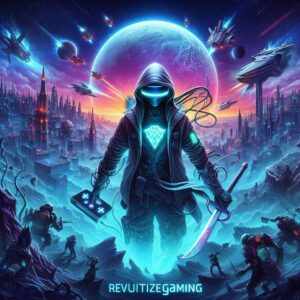Introduction:
As the world becomes increasingly digitized, non-fungible tokens (NFTs) have gained significant popularity among collectors and investors. While most NFTs are based on art or music, there’s a growing interest in space-themed NFT games that allow players to explore and participate in virtual space adventures. In this article, we’ll delve into the world of space NFT games, exploring their features, benefits, and potential challenges.
What are Space NFT Games?
Space NFT games are digital games that use blockchain technology to create unique, one-of-a-kind in-game assets that can be bought, sold, and traded as NFTs. These games often take place in virtual worlds where players can explore space, build spacecraft, and engage in various space-themed activities. Space NFT games are typically built on Ethereum or other blockchain platforms and use smart contracts to manage game assets and transactions.
How do Space NFT Games Work?
Space NFT games work by creating a digital representation of virtual objects and experiences that can be bought, sold, and traded as NFTs. Players can purchase in-game assets such as spacecraft, weapons, and supplies using cryptocurrency or traditional payment methods. These assets are then stored on the blockchain, making them unique and secure.
Players can also engage in various activities within the game, such as mining asteroids for resources or battling alien creatures. As they progress through the game, players can earn rewards and achievements that can be displayed on their NFT profile.
One of the key features of space NFT games is the use of decentralized finance (DeFi) tools to enable players to trade and manage their assets. DeFi platforms like Uniswap and Aave allow players to swap tokens, stake assets, and access other financial services directly within the game.
Benefits of Space NFT Games
Space NFT games offer several benefits for both players and developers. For players, these games provide a unique and immersive experience that combines gaming with investment potential. By owning in-game assets as NFTs, players can participate in the game economy and potentially earn returns on their investments.
For developers, space NFT games offer an opportunity to monetize their content and create new revenue streams. By building a community of engaged players who own and trade in-game assets, developers can create a sustainable business model that supports ongoing game development and updates.
Challenges of Space NFT Games
Despite their many benefits, space NFT games also present several challenges for both players and developers. One of the main challenges is ensuring the security and integrity of the blockchain infrastructure used to manage game assets and transactions. Hackers and other malicious actors can exploit vulnerabilities in the blockchain to steal or manipulate game assets, potentially ruining player experiences and damaging the reputation of the game developer.
Another challenge is the regulatory environment surrounding NFTs and cryptocurrencies. As these technologies are still relatively new, there is a lack of clarity around how they will be regulated in different jurisdictions. This uncertainty can make it difficult for developers to navigate legal and compliance requirements, potentially limiting their ability to monetize their content or attract players from certain regions.
Case Studies:
There are several examples of successful space NFT games that have captured the imagination of players and investors. One such game is "Spaceland" by Decentraland, a virtual reality platform that allows players to explore and participate in a variety of space-themed experiences.



